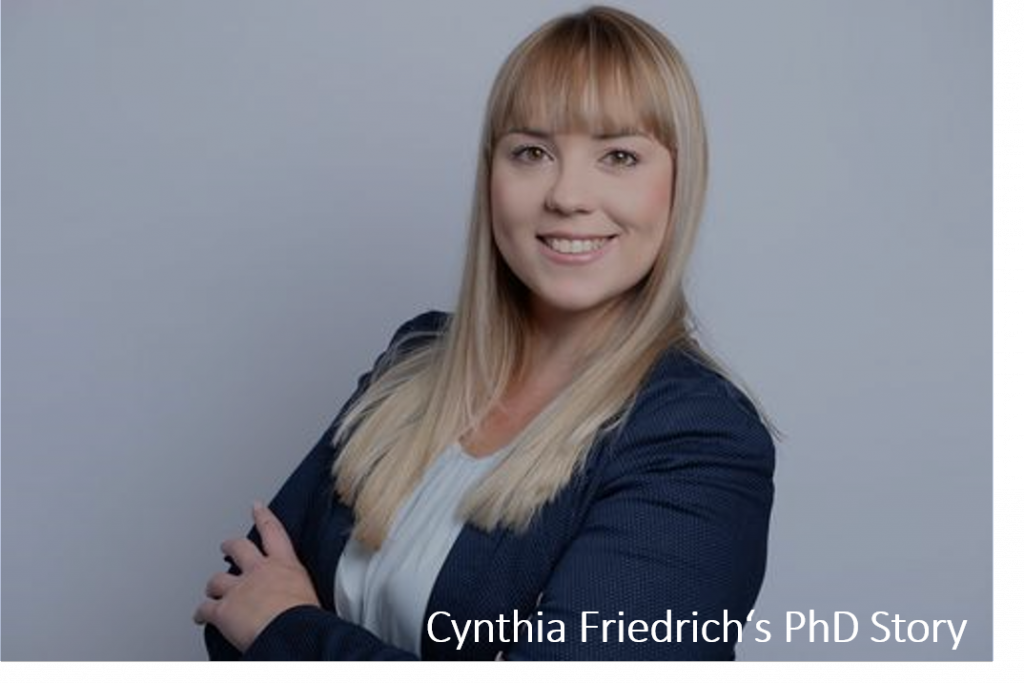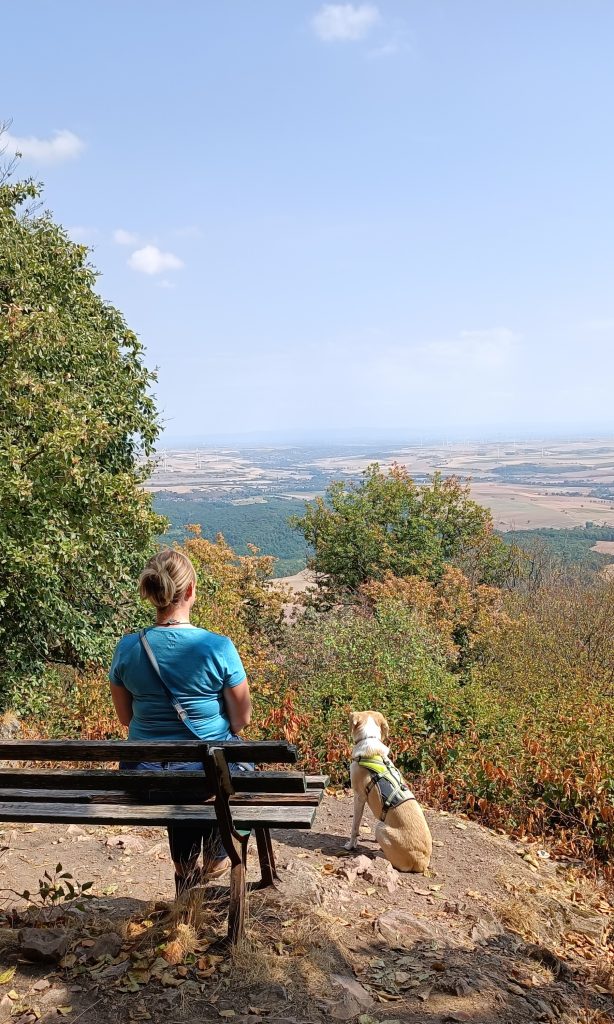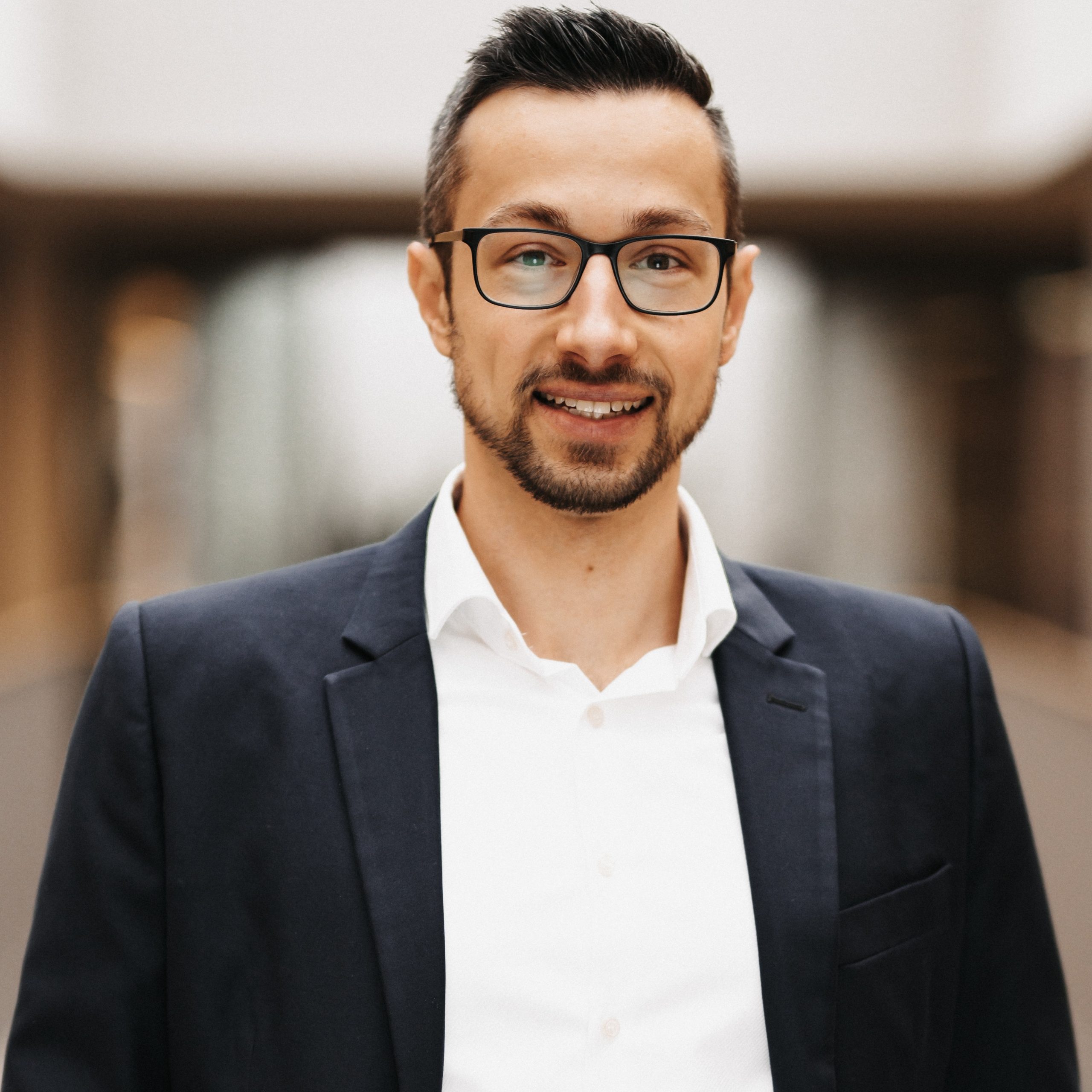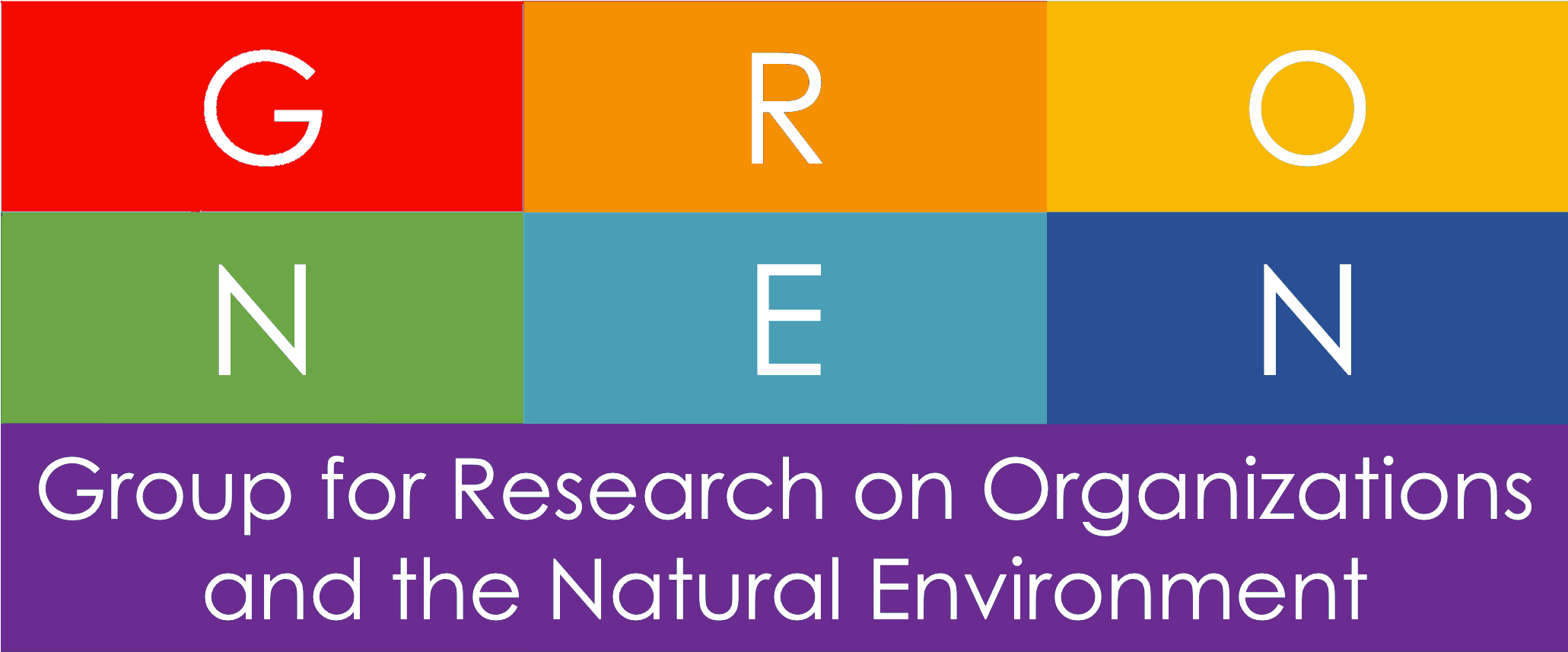
Cynthia Friedrich is a PhD student at the Technical University of Kaiserslautern in Germany.
Even though she initially did not plan to pursue a PhD, she co-authored an article while writing her master thesis, and thus, realized how fun this can be.
Currently, she is about to finalize her PhD on the legitimacy of sustainability managers.
Here is Cynthia’s story.
What are the top three highlights you have had during your time as a PhD student?
My current highlight was definitely visiting the AOM conference in Seattle. Due to the pandemic, it’s been my first international top conference in the management field of this size. It’s been super interesting to get to know that many people and to get to see the faces behind all those papers one is reading. Also, I really enjoyed the very interesting special sessions for several topics within the conference.
One highlight was also to be involved in the process of finding a candidate for a vacant professor position. It was very interesting to see how this procedure works from an administrative perspective and to have a look at the applications.
Another highlight is always when projects are wrapped up. For instance, finishing the very first paper. Even though it will be revised several times afterward, it feels great to be at this point of having it finished for now. That’s a great feeling.
In particular, my very first paper is currently under review in a top-ranked journal. The related conference contribution even resulted in winning the GRONEN Best Phd Student Paper Award – this was a big highlight, too. Also, it’s great to see the progress: one realizes how the paper improves over time and how one is developing itself as well. The current version of the paper is really different from its first draft. Hence, it’s really fulfilling to see how the challenge made me grow.
When something is accomplished, it is important to honor success.
What inspired you to pursue a PhD?
Becoming a PhD student happened accidentally [laughs]. I never planned to write a doctoral thesis. For me, it was always clear that I will be working in the industry after having finished my studying. I intended to reaching a management career level in industry. Initially, this was my goal. But then, becoming a PhD student happened spontaneously:
While I was writing my master thesis at the chair, at which I am employed by now, my supervising professor was working on an article that was similar to the topic of my thesis. Hence, I was being asked if I would like to join as a co-author to add my ideas on the structure of this paper, etc. I agreed and we thus worked jointly on this project. This is when I’ve realized that it’s a lot of fun to develop the story line and to accomplish something. Afterward, I was being asked if I was interested in pursuing a PhD. So, I thought about it. Since it was really fun to work on the paper, I decided to go for it.
In brief, what is the empirical method you are adopting in your thesis?
Generally speaking, I am choosing the method based on the research question.
Hence, this can be qualitative (e.g., expert interviews) as well as quantitative research (e.g., experiments), but also includes systematic literature reviews. Basically, it can be anything.

Can you describe a “eureka moment” you might have had during your PhD?
I guess the most influential ‘eureka moment’ was when I realized that legitimacy might become my actual PhD topic. First, my idea was to write about strategies for justifying one’s own work. In this context, I then came across the notion of occupational rhetoric. After about a year, I then realized that the subject area I was actually working on was legitimacy. It was not until then, when I started to dive deeper into the literature on legitimacy. Then, I started exploring this field.
What side projects, communities, or other initiatives are you involved with?
Helping to organize the application committee for a vacant professor position has been one of my academic side endeavors. Additionally, as part of my teaching, we do have a cooperation with local NPOs, in which we – together with the students – really accomplished several goals. Also, I am working unsalaried together with a local non-profit organization, which focuses on supporting young people. Together, we are planning to create a digital educational book.
Apart from that, I have been member of a jury as part of a competition, which evaluates students’ business plans.
What hobbies or interests do you enjoy outside of work?
I really like animals – basically of all types. I do have a dog and a cat, but I like any animal. Just recently, I discovered bicycling for myself. And, in combination with biking, I like ‘geo caching’.
What three tips would you offer to new PhD students in your field?
- I would recommend new PhD students to stay ‘open-minded’. Do not limit yourself to focusing on your very first idea, but try to welcome new inputs/ideas, too.
- The power of endurance is also very important. I feel like this is something one just has to bring to this job, just as a personality trait. When something is accomplished, it is important to honor success (to stay motivated for future tasks).
- Self-esteem is also of use. Be confident about what you have written and defend your point of view – even if there are critical questions about it.
Always accepting what others are saying would be the wrong way to go. It is important to sometimes say ‘no’.
In brief, what does the GRONEN community mean to you?
I recently just have had my first touchpoints with GRONEN community as part of the conference in Amsterdam. And I really have to say that I felt very, very well there. It didn’t feel like being judged by others, but instead there was some kind of a feeling of a belongingness atmosphere. Being at the conference, I was surrounded by really nice people.
After my presentation, I felt to be in good hands and received constructive critics only. This was quite different to what I have heard from other management conferences.
Additionally, I think that GRONEN is really focusing on supporting young researchers, what I positively acknowledged. For instance, as part of the panel discussion, young researchers’ voices are really counting and treated as equally compared to those from established researchers.
What’s next for you?
For me, the next thing is the final spurt. Finalizing papers, submitting them, and, ultimately, handing in my doctoral thesis as well as defending it.
Contact
If you would like to reach out to Cynthia, you can contact her per email or on LinkedIn.

Benedikt Brand works as post-doctoral researcher at the chair for Marketing & Innovation (Prof. Dr. Baier) at the University of Bayreuth (Germany).
